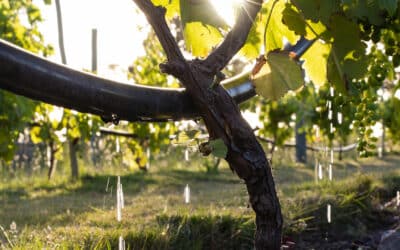Another comparative example of the NPKS offer in JOC would be 280kg of DAP (di-ammonium phosphate); plus, 380kg of SOP (sulfate of potash) added per hectare – but all in a more bio-available form. When considering the total volume of NPKS nutrition, Traces, Minerals and Micro-Nutrients held within the JOC, there is arguably $1,000 worth of direct fertiliser-based benefit.
Other kilogram NPKS comparisons in 40m3 of Jeffries Organic Compost would be a slow-release version of calcium nitrate (190kg) including the boron; and 100kgs of MKP (mono-potassium phosphate) both of which are quite potent but very water soluble and highly prone to leaching.
Readily available calcium and magnesium
Jeffries Organic Compost also provides 523kg of calcium, 79kg of magnesium, 68kg sulphur in a readily available organic form, extremely useful to healthy plant growth than the several tonnes per hectare that would be required if using soil amendments like lime, dolomite, or gypsum.
Impressive trace element contribution
Trace elements are also an impressive contribution when using Jeffries Organic Compost. Zinc, copper, and manganese are well understood, with several kilos of each provided in Jeffries Organic Compost. But the lesser-known story regarding iron, silicon, boron, cobalt, and molybdenum make for unusually positive results in soils and crop performance. Unusual because these elements are essential for best crop performance, yet there is little focus on them until exhausted from the soil and crop deficiencies begin to show. Iron and silicon are excellent contributors to plant health function and stress resistance, like a regular tonic. Boron, cobalt, and molybdenum all have very useful and key roles to play – small amounts required but very handy for better yield outcomes, nonetheless. Jeffries Organic Compost supplies these other micro-nutrients in volumes that will contribute all season and takes care of crop micro-nutrient needs.
Important to note
It is important to note that compost is often spread uniformly across the field but can then be blended, mounded, and concentrated towards the planting zone where it will have the greatest cumulative effect on crops all season. There will always be a volume of compost that remains in the soil profile unused directly by crops but that fraction is still contributing in season to the general health, fertility and better performance of the soil profile. High volumes of quality compost are known to suppress pathogenic microbes and root-invasive fungi and nematodes. There are several on-going seasonal benefits to having a well composted soil surrounding a crop.
In summary, Jeffries Organic Compost is the best way an intensive cropping farmer can underpin robust, healthy, and successful crop production. In so many ways – physically, chemically, and biologically, we find Jeffries Organic Compost keeps contributing all season for the strongest outcomes. And it doesn’t end there. Residual benefits from Jeffries Organic Compost remain for the next season too!






